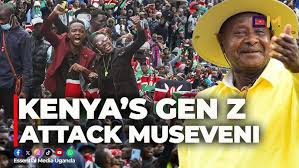Oti Chiefs Boldly Demand 30% Stake In District Assemblies

Oti chiefs demand district assembly seats to strengthen local governance and power sharing in Ghana.
Nana Soglo Alloh IV, President of the Oti Regional House of Chiefs, urged constitutional reforms to give traditional leaders 30% representation in local assemblies.
Constitutional reform: integrate traditional leaders in district governance
During President Mahama’s visit to Dambai College of Education, Nana Soglo stressed the exclusion of chiefs from governance structures.
“The Constitution lacks integration of traditional leaders in district governance,” he said.
Presently, chiefs only connect through Regional Coordinating Councils.
Revenue sharing: chiefs demand development funds
Oti chiefs seek access to the District Assemblies Common Fund to support community development, peacekeeping, and conflict resolution.
“We play critical roles. Funding will boost our contribution to national growth,” Nana Soglo noted.
They also asked to attend district assembly meetings voluntarily.
Conflict resolution: traditional leaders can address local unrest
Conflicts in Nkwanta South, Kadjebi, and Kpassa highlight the need for chief involvement.
Nana Soglo said local authorities can help resolve issues early, reducing violence.
Infrastructure gap: Oti chiefs lack permanent headquarters
Since 2020, the Oti Regional House of Chiefs has shared space with the Lands Commission in Dambai. Construction of their office halted after a government change.
“Despite setbacks, we remain committed to national development,” Nana Soglo affirmed.
📣 Call to action: support constitutional reform for inclusive governance
Ghanaians must support constitutional reform. Including chiefs in local governance promotes peace, development, and power balance.
💡 Take-home message: give chiefs a rightful seat at the table
- Oti chiefs demand district assembly seats to influence governance.
- They want access to revenue for community development.
- Traditional leaders offer local conflict resolution and peace-building.
- Constitutional reform ensures balanced decentralisation.
- Support inclusive governance to build a peaceful and effective Ghana.



